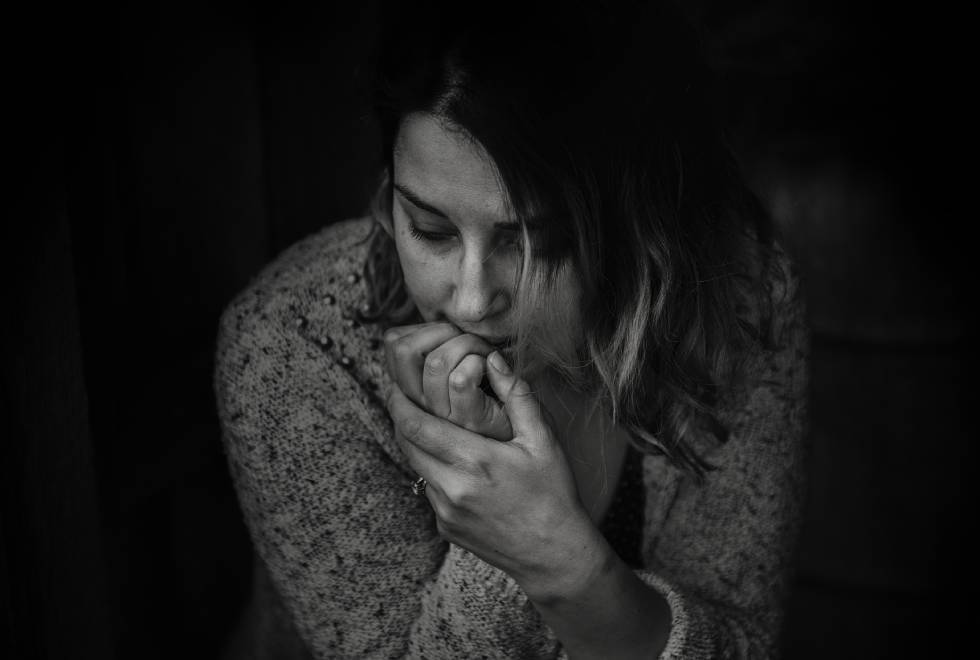
“What a bad habit you have!” – people who bite nails or skin, pop pimples, pull hair, or scratch wounds on the skin may hear this phrase very often. “Stop doing it!”
This is how we deal with a bad habit – you just should stop doing it, period!
However, onychophagia (nail biting), dermatophagia (biting, gnawing, or chewing on the skin), and trichotillomania (hair-pulling) – are similar phenomena. They are all neurotic disorders that a person cannot just stop at will.
These are obsessive-compulsive behaviors that act as a safety valve that relieves strong anxiety when a person is not able to cope with it using other methods.
“I simply cannot stop!” – says Natalie. “I constantly want to bite my nails and pop pimples. As if it makes me feel calmer and removes tension and nervousness. Well, it doesn’t completely remove them but makes me feel better. And during the tax season (I am an accountant) this problem becomes completely unmanageable.”
Such phenomena may have different reasons, but in essence, they have a common root: inside a person, there is something that creates a strong nervous tension. As a rule, this issue is chronic. Chronic stress with a certain personal disposition provokes an unconscious desire to harm oneself, no matter how scary it sounds.
Some psychological theories posit that the desire to bite nails or fingers and pick wounds is an expression of auto-aggression (the aggression directed at self).
Self-therapy can be an essential tool for personal growth and self-improvement.
Browse through our courses and see the positive changes they can bring to your life.
You are not sure where to begin?
How does it work?
A child or an adult does not know how or does not have an opportunity to express their negative emotions (most often, people view anger, irritation, and sadness as “bad” emotions). Since the person is not allowed to “feel” and even more so express these emotions, the psyche subconsciously changes its direction, and this is how auto-aggression is produced. When the person harms themselves in this way, they feel better and their tension decreases. This pattern of behavior gets reinforced.
We carry many such patterns from childhood. Self-harming behaviors may be a manifestation of different states and feelings. Most often they reflect:
– The feeling of guilt (“I am bad, I should be punished”)
– Anxieties and fears (“I don’t have self-confidence”)
– Low self-esteem (“I am useless”)
The underlying reason lies in:
– Certain styles of upbringing. For example, parents impose high demands or want achievements from the child (trophies, victories, good grades) – at any cost.
– Psychological traumas. For example, when during divorce parents use the child for blackmailing each other, or when there is emotional or physical violence.
– Obsessive desire to earn love and approval from others.
How can you deal with it? And in general, are there ways to cope?
The first thing that people try to do is to turn on control: they ask their friends and family to remind them, they put something bitter on their nails or fingers to teach themselves not to put them in the mouth, they try to keep their hands busy. But this is not very effective because their behavior is a symptom, and the root cause is the state of anxiety. Therefore, effective treatment should start from there.
If the behaviors that we described above are your issue, then it makes sense to seek the help of a psychiatrist or a psychologist. A psychiatrist may prescribe treatment if you need medicine to remove the first acute symptoms. And then, together with a psychologist, you can learn to deal with your anxiety by using other non-traumatic methods and finding new constructive ways of dealing with stress.
Help us grow on Instagram 👇